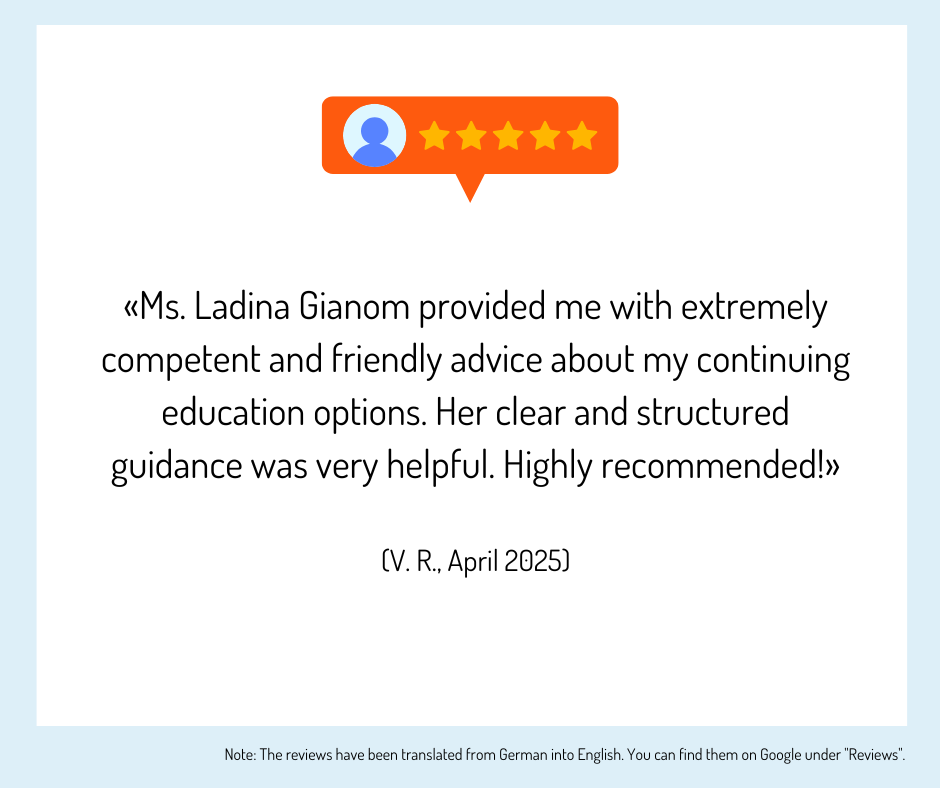Respiratory therapist: training, further training, overview of providers
Respiratory therapist training - an interesting profession in the health sector
Questions and answers
Training as a respiratory therapist - how can I bill the health insurance company afterwards?
The health insurance companies are free to decide which therapy costs they will cover with their supplementary insurance; this also applies toRespiratory therapy treatments.
Most health insurance companies are guided by the two registers EMR and ASCA when it comes to covering the costs of alternative or complementary medicineIf you are registered there as a therapist for a certain method, it is highly likely that you will be able to claim the corresponding treatment costs from health insurance companies.
The possibility of registration depends on the level of training (EMR and ASCA) and experience (EMR only). For registration with respiratory therapy you need:
- EMR600 contact hours of method training + 150 contact hours of medical basics + 250 self-performed treatments or the branch certificate OdA KT Respiratory Therapy
- ASCA500 contact hours of method training + 150 contact hours of medical basics or the OdA KT Respiratory Therapy industry certificate
What skills do I acquire in training to become a respiratory therapist?
Training to become a respiratory therapist prepares you for theProfessional and independent practicewith this complementary therapy method. On the way toIndustry certificate OdA KT(Organization of the Working World Complementary Therapy) in Respiratory Therapy, you will acquire skills in the following areas:
- Method training:Theoretical knowledge of the history and development of respiratory therapy, the underlying concepts, theories and possible applications
- Application of the method: practical skills such as the specific hand movements, movements, movement sequences, treatment sequences, etc. of respiratory therapy
- Basic medical knowledgeand the necessary for respiratory therapySpecialized medical knowledge
- Occupation-specific basicsThis includes topics such as understanding health, the concept of man, ethics, practice management
- social science basicsThis includes psychology, communication and communication skills
You also train your mindfulness and improve your self-awareness.
What is the approximate cost of training to become a respiratory therapist?
Depending on the provider and duration, a sound training course to become a respiratory therapist recognized by the OdA KT costs between CHF 15,000 and CHF 25,000.
You can find out the details from the providers themselves. Don't forget to ask about any extra costs for training documents, fees for external examinations, etc.
What is reflective breathing therapy?
Reflective breathing therapy according to Liselotte Brüne and Dr. Ludwig Schmitt is a proven form of physiotherapy that uses massage and grip techniques to treat muscles, fascia, spinal structures, the nervous system, meridians, reflex and connective tissue zones and stimulates the diaphragm. This triggers a reflex breathing reaction, which in turn stimulates the self-regulation of the involuntary nervous system.
Is Reflective Breath Therapy one of the OdA KT methods?
No. Reflective respiratory therapy, also known as respiratory physiotherapy, is not part of the complementary respiratory therapy specialties of the OdA KT, even if there are overlaps, particularly in the application of certain grip techniques.
What are the requirements for the respiratory therapist course?
Complementary therapy training, including training in respiratory therapy,standas a ruleopen to all interested persons. No special previous training or specific professional experience is required.
However, some schools impose their own conditionsfor admission, such as a minimum age of 20 or 25 years, an apprenticeship qualification with Federal Diploma of Vocational Education and Training (Vocational Education and Training) or Matura or several years of professional experience or good knowledge of German.
If you plan to complete your training byfor the federal diploma as a complementary therapist in respiratory therapyyou need aUpper-secondary level qualification(Federal VET Diploma, Matura or equivalent).
How long does it take to train as a respiratory therapist?
TheRespiratory therapybelongs to the group of methods thatIndustry certificate OdA KT(Organization of the Working World of Complementary Therapy). Training for the OdA KT sector certificate as a respiratory therapist is modular and takes aroundthree years.
The OdA KT industry certificate opens the way toAdvanced Federal Professional Examination (AFPE)(AFPE) and theFederal diploma as a complementary therapist in the respiratory therapy method. This consists of a phase of so-called "supervised professional practice", in which at least 36 hours of supervision and 600 hours of treatment must be completed. With a 50 percent workload, the phase lasts aroundtwo yearswith a 30 percent workload, for examplethree years(max. 5 years, as the module qualifications required for admission to the AFPE lose their validity after this period).
What are possible fields of work in respiratory therapy?
Fields of respiratory therapy
Respiratory therapy is practiced with children, adolescents and adults of all ages. Respiratory therapists support their clients with breathing difficulties and respiratory diseases as well as other physical complaints and emotional stress. Respiratory therapy is also used to support clients in special life situations, such as chronic illnesses or during pregnancy.
Application examples for respiratory therapy
With targeted breathing exercises, for example, you can have a positive effect on muscle tension or digestive problems, achieve relief from asthma or bronchitis and find peace and balance in states of exhaustion or inner restlessness and insomnia.
Forms of work
Respiratory therapists work full or part-time, for example in rehabilitation centers, hospitals, addiction facilities or retirement homes. They also often work independently, in their own practice or a group practice, give seminars for companies and private individuals or lead movement and breathing groups, etc.
What is taught in respiratory physiotherapy training?
In respiratory physiotherapy training, you learn to consciously perceive the breathing process and thereby make breathing easier in the long term. This includes
- Breathing and physical exercises
- Manual therapy methods
- Therapeutic discussions
- Meditation and relaxation
- Mindfulness and awareness-enhancing applications
- Vocal work with the voice (voice work)
- Meridian system
What can you do after training as a respiratory therapist?
You complete the respiratory therapy training in the specialization offered by the school or your chosen specialization and complete it with theMethod diploma of the schoolfrom. You will then be professionally prepared for practical work as a respiratory therapist.
However, theRegulation of professional practice in the healthcare sectorto. If you want to work practically in the long term, it is advisable to aim for the next degree or, even better, the next two degrees:
- If you have a diploma in methodology and can also demonstrate your job-specific skills in the so-called "Tronc Commun" (interdisciplinary medical, social science and job-specific basics), you can apply for theBranch certificate OdA KT in respiratory therapyrequest.
- With the OdA KT industry certificate, the Advanced Federal Professional Examination (AFPE) in Complementary Therapy opens the way to theFederal diploma as a complementary therapistwith the breathing therapy method.
You can find details in ourGuide to training and continuing education, further training in naturopathy and complementary therapy.
Why train in respiratory therapy?
Because we live the way we breathe!
Breathing is not just a vital "mechanism". Physical changes, thoughts and feelings have a direct effect on our breathing, stimulating it or restricting it. When we are frightened, our breathing stops, when we are stressed it becomes shallow, etc. Health and breathing are directly related.
Respiratory therapy makes you aware of breathing processes and teaches you how to use them. It is one of the complementary therapeutic methods and its effect on respiratory diseases and other physical and psychological complaints has been scientifically proven.
Training in respiratory therapy can therefore be the start of a meaningful and satisfying career.
What is respiratory gymnastics?
Respiratory gymnastics uses techniques to improve breathing by strengthening the respiratory muscles and improving their efficiency as well as mobilizing secretions. It is a branch of physiotherapy and medical respiratory therapy. Patients with chronic lung diseases often have inefficient breathing due to incorrect breathing technique. The aim of respiratory gymnastics is to improve the lung function of these patients. At the same time, respiratory gymnastics serves to mobilize the chest. By improving thoracic mobility, the ability to inhale can be improved.
What is respiratory therapy physiotherapy and when is it used?
TheRespiratory physiotherapy- is the correct term -is a special form of physiotherapywith the aim of strengthening the muscles involved in breathing, increasing lung volume and thus improving breathing overall. Breathing techniques, awareness exercises, physical exercises and various forms of relaxation are used. Respiratory physiotherapy is particularly suitable for people with breathing problems and respiratory diseases such as chronic obstructive pulmonary disease (COPD) or asthma.
Attention: Breathphysiotherapy is not to be confused with the holisticcomplementary therapy methodRespiratory therapyaccording to the method catalog of the OdA KT,even if there are overlaps, especially in the application of certain grip techniques.
Experiences, evaluations and opinions on training / further education
Haven't found the right training or further education yet? Benefit from educational advice now!
Further training is not only important in order to maintain or increase professional attractiveness, investing in training or further training is still the most efficient way to increase the chances of a pay rise.
The Swiss education system offers a wide range of individual training and further education opportunities - depending on your personal level of education, professional experience and educational goals.
Choosing the right educational offer is not easy for many prospective students.
Which training and further education is the right one for my path?
Our education advisory team will guide you through the "education jungle", providing specific input and relevant background information to help you choose the right offer.
Your advantages:
You will receive
- Suggestions for suitable courses, seminars or training programs based on the information you provide in the questionnaire
- An overview of the different levels and types of education
- Information about the Swiss education system
We offer our educational counseling in the following languages on request: French, Italian, English
Register now and concretize your training plans.

Immediately to the right training
Attraktive Services für Swisscom Mitarbeitende
Kostenlose Services
» Bildungsberatung (Wert: CHF 150.–)
Bildungs- und Businessratgeber (Wert: CHF 175.–)
» Rabatte
Attraktive Rabattierungen seitens der Bildungsanbieter.
» Massgeschneiderte Bildungsangebote
Ohne grossen Zeitaufwand den besten Trainer, Coach oder Schulungsanbieter finden
Bildungsangebot Schweiz
Aus über 700 Bildungsanbietern das richtige Bildungsangebot finden



